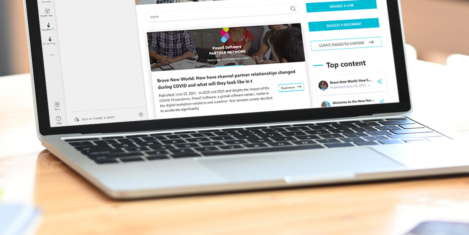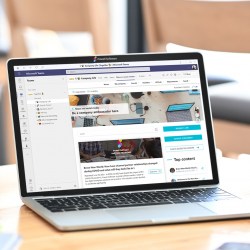To provide the best experiences, we use technologies like cookies to store and/or access device information. Consenting to these technologies will allow us to process data such as browsing behaviour or unique IDs on this site. Not consenting or withdrawing consent, may adversely affect certain features and functions.
The technical storage or access is strictly necessary for the legitimate purpose of enabling the use of a specific service explicitly requested by the subscriber or user, or for the sole purpose of carrying out the transmission of a communication over an electronic communications network.
The technical storage or access is necessary for the legitimate purpose of storing preferences that are not requested by the subscriber or user.
The technical storage or access that is used exclusively for statistical purposes.
The technical storage or access that is used exclusively for anonymous statistical purposes. Without a subpoena, voluntary compliance on the part of your Internet Service Provider, or additional records from a third party, information stored or retrieved for this purpose alone cannot usually be used to identify you.
The technical storage or access is required to create user profiles to send advertising, or to track the user on a website or across several websites for similar marketing purposes.
 Skillsoft (NYSE: SKIL), has released new research exploring the current state of women in tech including the challenges and barriers to inclusion they face and how employers can better support them. Findings from Skillsoft’s 2021 Women in Tech Report claim that while female employees have gained hard-fought ground in the workplace, a large gap still exists when it comes to opportunities for professional development and career advancement. (more…)
Skillsoft (NYSE: SKIL), has released new research exploring the current state of women in tech including the challenges and barriers to inclusion they face and how employers can better support them. Findings from Skillsoft’s 2021 Women in Tech Report claim that while female employees have gained hard-fought ground in the workplace, a large gap still exists when it comes to opportunities for professional development and career advancement. (more…)








 New research from
New research from 
 A new report ‘
A new report ‘
 As SMEs (small and medium-sized enterprises) grapple with a myriad of challenges to keep their companies running successfully,
As SMEs (small and medium-sized enterprises) grapple with a myriad of challenges to keep their companies running successfully, 


 According to a
According to a 
 In a survey of UK cyber security, IT and business professionals commissioned by
In a survey of UK cyber security, IT and business professionals commissioned by 
 A new
A new 
 A new report by
A new report by 
 As rush hour traffic returns to pre-pandemic levels and bosses call time on working from home, Stockport-based and photo ID card specialists
As rush hour traffic returns to pre-pandemic levels and bosses call time on working from home, Stockport-based and photo ID card specialists 
 Workers are leaving jobs like never before, and it’s causing a shortage of talent that has companies around the globe reeling, according to a
Workers are leaving jobs like never before, and it’s causing a shortage of talent that has companies around the globe reeling, according to a 








November 11, 2021
Hybrid working is both a challenge and opportunity for comms firms
by Andrew Walker • Comment, Flexible working, Technology